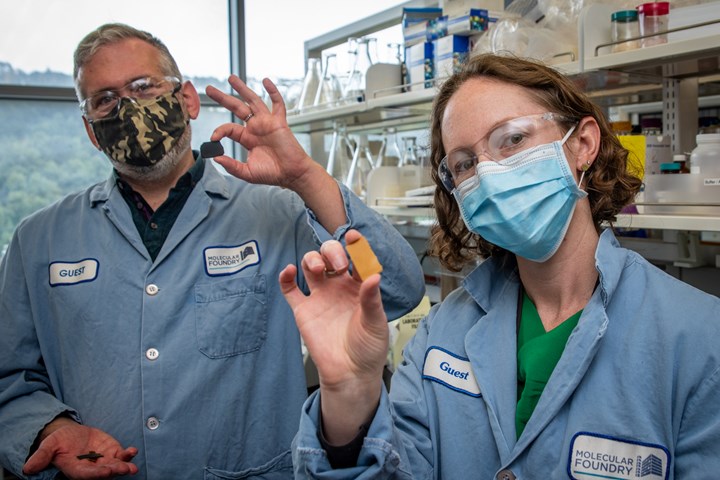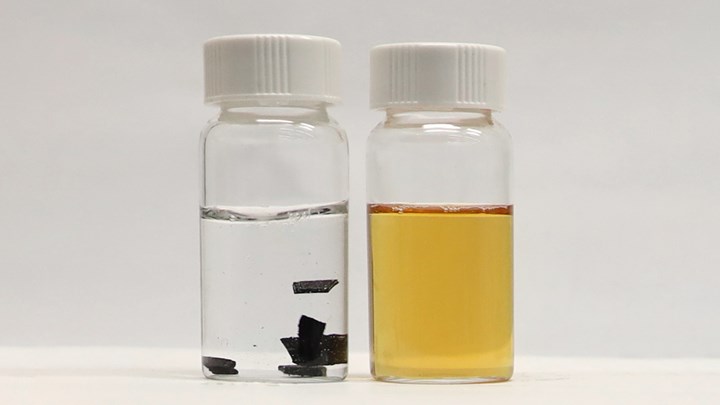Custom Engineered Polymers can be Separated for Recycling
Polydiketoenamines can be customized, combined, then taken apart again.
New research, published this week in the journal Science Advances, could pave the way for a new class of fully recyclable materials, including mixed plastics and composites of plastic bonded to other materials such as glass and metal.

Scientists Brett Helms and Corinne Scown hold pieces of PDK plastic inside Berkeley Lab's Molecular Foundry. Photos: Thor Swift/Berkeley Lab
Scientists at the Lawrence Berkeley National Laboratory first described polydiketoenamines (PDK), a new type of recyclable plastic, in their 2019 Nature paper. Now, they have shown that PDK materials can be customized, yielding different structures that hydrolyze at different rates, which facilitates their separation during the recycling process.
In the present study, researchers created 4 different PDK resins and used this property to depolymerize them into their monomers in hydrochloric acid solution at 4 different temperatures. They also tested separation of different types of PDK after blending and compression-molding, PDK as an interstitial layer in PP/PET film, and PDK bonded with glass and metal.

Pieces of PDK plastic in acidic solution, demonstrating how the material easily breaks down into its original monomers.
Reusable monomers, fillers, and additives were successfully recovered from the process and are described as indistinguishable from feedstock. Based on their results, the researchers believe that new PDK materials will see future use in complex products comprising several types of materials, such as shoes and automotive parts.
“We now know how to tailor PDK plastics in order to recycle complex products comprising several types of materials,” said Dr. Brett Helms, staff scientist at the Berkeley lab. “Conventional materials used in such products can’t be recycled for reuse, since they can’t be deconstructed independently. Yet, if they were made from different, specially designed PDK polymers, then they could be for the first time.”
Related Content
-
Film Extrusion: Boost Mechanical Properties and Rate of Composting by Blending Amorphous PHA into PLA
A unique amorphous PHA has been shown to enhance the mechanical performance and accelerate the biodegradation of other compostable polymers PLA in blown film.
-
Scaling Up Sustainable Solutions for Fiber Reinforced Composite Materials
Oak Ridge National Laboratory's Sustainable Manufacturing Technologies Group helps industrial partners tackle the sustainability challenges presented by fiber-reinforced composite materials.
-
Breaking News From NPE2024
Here is a firsthand report of news in injection molding, extrusion, blow molding and recycling not previously covered.
















